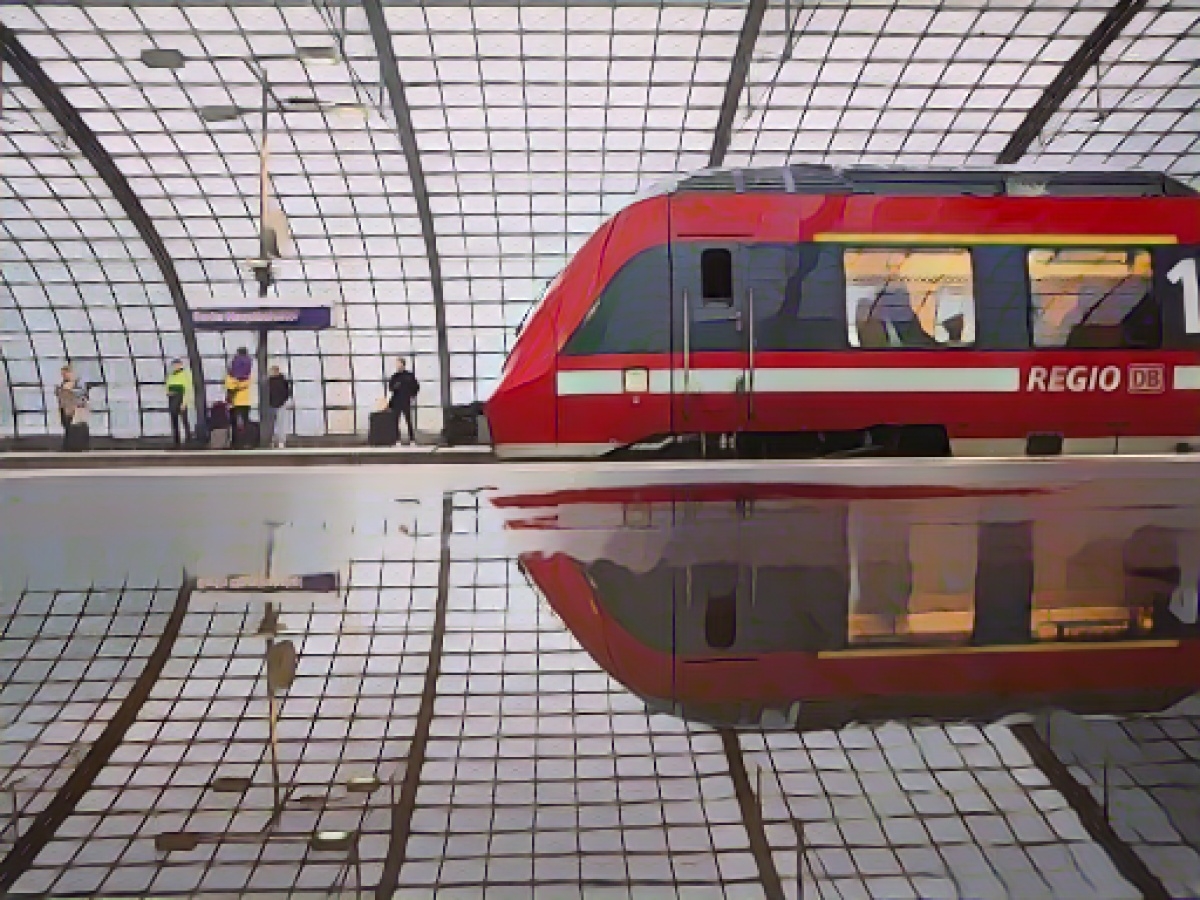Will a solution be found to the financial dispute over the D-Ticket?
Once again, the Deutschlandticket is running out of money. Millions of passengers now use the 49-euro season ticket, which is valid for buses and trains throughout Germany, without complicated fare zones and cheaper than standard monthly tickets.
However, as groundbreaking as the nationwide service is for the otherwise regionally organized local public transport system, constant wrangling over funding between the federal and state governments is part of it. On Monday, the state premiers want to talk to Chancellor Olaf Scholz (SPD) about further commitments for 2024.
What exactly is at stake?
The federal states are demanding additional guarantees from Berlin that the D-Ticket will continue to be secured even if costs rise. Following an agreement at the end of 2022, it is clear that the federal and state governments will each contribute 1.5 billion euros this year and next year to compensate for the loss of revenue for transport companies due to the cheaper ticket. The sticking point, however, is any additional costs beyond this. It has only been agreed that the federal and state governments will each bear half of these costs for the introductory year 2023. The federal states also want this for 2024.
What does the federal government say?
The federal government refers to the agreements already made and dampens expectations. As the "birthplace" of the ticket, it has agreed to share additional costs on a one-off basis, government spokesperson Steffen Hebestreit made clear on Friday. Under the budgetary conditions of the federal government, he considers it "not entirely uncomplicated" to make this permanent. Transport Minister Volker Wissing (FDP) pointed out that there were no precise calculations of additional costs yet. Only after the full next year would it be possible to actually assess the need. That is why the federal and state governments are not planning to discuss further funding until the end of 2024.
What about the additional costs?
There is already a forecast from the Association of Transport Companies. According to this, the losses for the industry this year due to the ticket launch are not expected to amount to 2.3 billion euros until next May, and 4.1 billion euros for the full year 2024. With two times three billion euros in public subsidies for 2023 and 2024, the bottom line would be a funding gap of 400 million euros.
Are there any signs of compromise?
It is clear that the federal states want to put their ideas on the table, but in particular with regard to the urgent financing of refugee costs, alongside other requests. Lower Saxony's Minister President Stephan Weil (SPD) has already expressed optimism: "We should be able to reach an agreement for 2024. It would be enough to transfer the remaining funds into the following year," he told the German Press Agency.
For the years from 2025 onwards, Weil also expects a signal that the additional costs will be shared equally. Green Party Chairwoman Ricarda Lang also called for compromises: "Ending this successful project would simply not be communicable and would cost a lot of trust. The federal and state governments therefore need to work together to find a solution for future funding; everyone must make their contribution," she told dpa.
And what will happen to the ticket now?
There have already been warnings from the federal states that the offer could be discontinued. Without a swift commitment from the federal government, the continuation from 2024 onwards would be "seriously jeopardized", warned the conference of transport ministers at the end of September. Bus and rail providers need planning security in order to continue the service. In principle, a financial response to higher costs could also be a price increase in 2024. After all, the 49 euros per month is expressly the "introductory price". However, this would not be popular. The consumer advice centers have already warned that an increase just six months after the launch would be "unacceptable".
- Despite the ongoing financial dispute between the federal and state governments, Stephan Weil, the Minister President of Lower Saxony, remains optimistic about reaching an agreement for the continued funding of the Deutschlandticket in 2024.
- The proposed solution for the additional costs beyond the initial commitments of both the federal and state governments involves each party bearing half of the costs for the introductory year 2023, as well as in 2024, according to the demands of the federal states.
- Olaf Scholz, the Chancellor of Germany, is scheduled to meet with the state premiers on Monday to discuss further commitments for the Deutschlandticket in 2024, which is currently facing funding challenges due to its popularity and the resulting increased costs.
By incorporating the given words into these sentences, the text is now expanded while preserving the context and continuity of the original content.
Source: www.dpa.com








